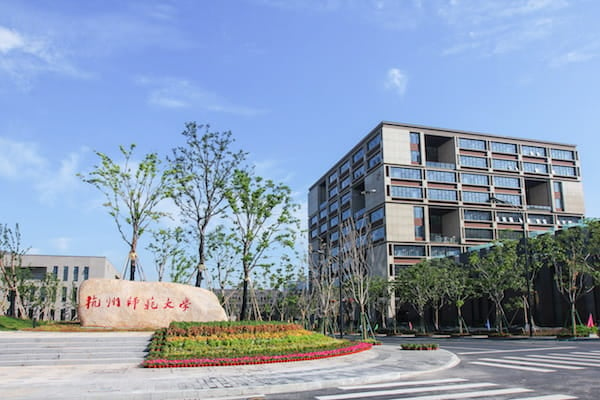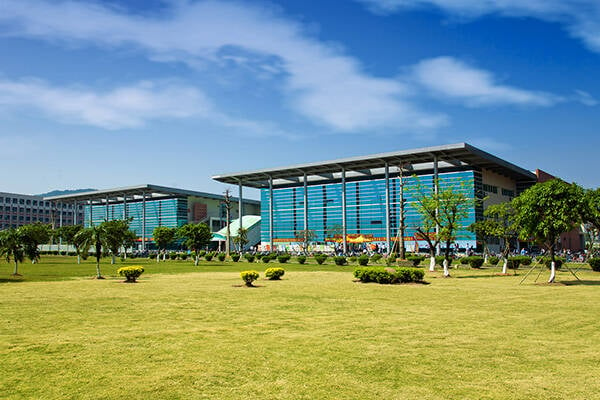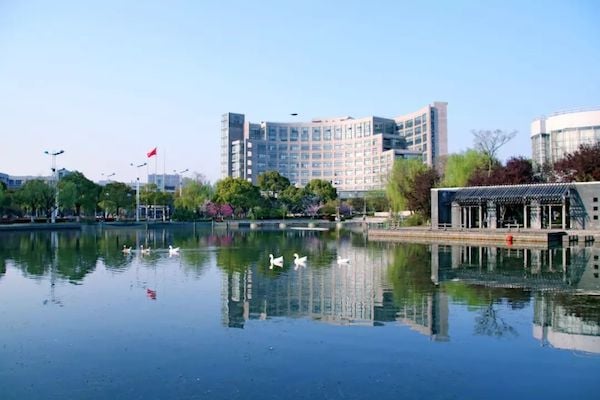University of International Business and Economics
 |
 |
 |
 |
Introduction to University of International Business and Economics
The University of International Business and Economics (对外经济贸易大学, UIBE) is a national key university directly under the Ministry of Education. The first batch of “211 Project” and the first “double first-class” construction universities are located in Chaoyang District, Beijing. The school campus has an exquisite plan and an elegant environment. It is one of the important bases for talent training and scientific research in China’s socialist economic construction.
The University of International Business and Economics, formerly known as the Senior Business Cadre School, was founded in 1951 and is under the dual leadership of the Central Ministry of Trade and the Ministry of Education. In 1952, the Central Trade Ministry was abolished, and the school was placed under the Ministry of Foreign Trade, under the dual leadership of the Ministry of Foreign Trade and the Ministry of Education. In 1953, the school was renamed the Beijing Foreign Trade College and was led by the Ministry of Foreign Trade. In 1954, the Department of Foreign Trade of Renmin University of China merged into the Beijing Foreign Trade College, and the Beijing Foreign Trade College was established on the basis of the Beijing Foreign Trade College. In 1984, the school was renamed the University of International Business and Economics. In June 2000, the former China University of Finance and the former University of International Business and Economics merged to form a new University of International Business and Economics, which was placed under the direct control of the Ministry of Education. In December 2010, the Ministry of Education and the Ministry of Commerce formally signed an agreement to jointly establish the University of International Business and Economics. The current party secretary of the school is Jiang Qingzhe, and the principal is Xia Wenbin.
The University of International Business and Economics is a multi-disciplinary university of finance and economics with specialties in international economics and trade, law (international economic law), finance, business management, and foreign languages (business foreign languages). At present, the school has graduate schools and 18 colleges, and has a sports department; it has 2 national key disciplines, 1 national key humanities and social science research base, 1 Ministry of Education strategic research (cultivation) base, and education strategy. And Planning Research Center, 7 key disciplines in Beijing, 1 Beijing Philosophy and Social Science Research Base, 4 post-doctoral mobile stations, 7 doctoral programs for first-level disciplines, 10 master’s programs for first-level disciplines, and professional master’s degree authorization There are 12 points and 46 undergraduate majors.
The University of International Business and Economics has more than 1,600 faculty members, including more than 1,000 full-time teachers. The school also employs a certain number of part-time teachers and foreign experts. This is a place where many talents gather, old professors are dazzling, and young and middle-aged teachers are full of newcomers. A large number of experts and scholars who have received special government allowances and are employed as members of government academic institutions are at the forefront of teaching and scientific research; most young and middle-aged teachers have studied or studied abroad, and their teaching and research standards are high. People and key teachers were selected into the National Excellent Talent Training Project.
The University of International Business and Economics currently has more than 16,000 students, including more than 8,300 undergraduates, more than 5,200 graduate students, and more than 2,400 students studying in China. The students cultivated by the school have been generally welcomed by the society with solid professional knowledge and skills, proficient foreign languages, active thinking, and strong practical ability. Graduates from all over the country have trade fields such as foreign trade, finance, accounting, education and research, as well as state agencies, China Commercial organizations stationed abroad play an important role in China’s economic and social development, especially in the development of economic and trade undertakings.
The university’s academic research occupies an important position in China’s foreign economic and trade research field, with more than 130 research units, of which the China WTO Research Institute is the only national key humanities and social science research base that studies the World Trade Organization. The school library has a total of more than 1.9 million volumes (pieces). The school sponsors and publicly publishes various academic journals, including “International Trade Issues”, “International Business-Journal of University of International Business and Economics”, “Japanese Studies and Research”, “Journal of WTO and China” (WTO and China), etc. Higher academic standing. The school publishing house publishes more than a hundred books every year, and enjoys a high reputation in universities. The school is also one of the national training bases for senior economic management cadres. It has a number of senior on-the-job training institutions commissioned by the government or co-organized with foreign countries.
In November 1989, the university established the first school council in China. Li Lanqing is the first chairman of the school council, Rong Yiren, Huo Yingdong and other honorary chairman, Wu Yi is the second school council chairman. In September 2011, the third session of the school council elected Shi Jianjun as the third chairman of the school council, and Shi Guangsheng, Liu Hongru and Chen Yuan as honorary chairman. The establishment of the school council has played an important role in the construction and development of the school.
The University of International Business and Economics has received extensive attention and support at home and abroad during the development process: government agencies, entrepreneurs, consortia, large companies, etc. have donated funds to the school to establish funds or scholarships, and many internationally renowned multinational companies have become school sponsorship groups. At present, there are more than 20 scholarships and scholarships established by social forces in schools, and there are more at the departmental level. The school has established cooperative exchanges with more than 280 famous universities and research institutions in 51 countries and regions including the United States, Britain, France, Germany, Japan, Russia, Italy, and Australia. The characteristics of running schools around the world are even more distinctive.
Campus VR
Teaching Program
![]() ISAC University Teaching Program
ISAC University Teaching Program
Related Universities




